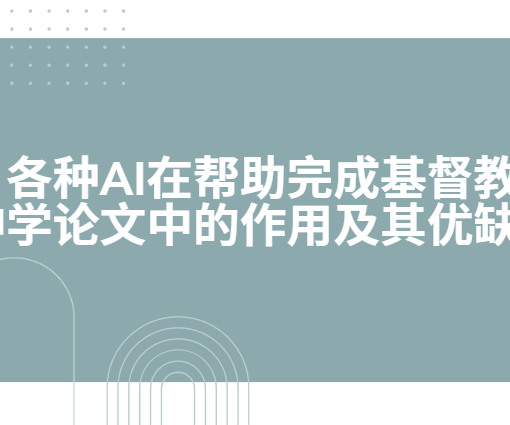reshaping how contemporary theologians understand God’s nature, the Church’s role, and the relationship between theology and economics. This influence manifests across multiple theological streams and practical applications.
## Theoretical Foundations in Modern Theology
Divine economy has fundamentally influenced modern theological method by providing a **relational framework** for understanding divine action. In contemporary theology, *oikonomia* continues to be an important concept, particularly in discussions about the relationship between God’s transcendence and His immanence, as well as the ways in which God’s redemptive plan is understood and enacted in history[1].
**Karl Barth** (1886-1968), a prominent 20th-century theologian, emphasized the *oikonomia* of revelation, where God discloses Himself in history, particularly in the person of Jesus Christ. For Barth, the *oikonomia* of salvation is inseparable from the doctrine of the Trinity, as God reveals Himself and works out His redemptive plan through the Father, Son, and Holy Spirit[1].
This Trinitarian approach to divine economy has become central to modern theological discussions, providing a framework where **economic Trinity** (God’s revealed activity in salvation history) corresponds to the **immanent Trinity** (God’s eternal internal relationships). However, this has also generated contemporary debates about whether overemphasizing economic categories risks reducing theology to mere functional analysis.
## Ecclesiological Applications
Modern ecclesiology has been significantly shaped by divine economy concepts, particularly in understanding the Church’s role as **steward of God’s mysteries**. The Church is seen as responsible for proclaiming the gospel and administering the sacraments as means of grace[1]. This has influenced contemporary discussions about ministry, church governance, and the relationship between local and universal Church structures.
In **Eastern Orthodox theology**, *oikonomia* remains a key concept in understanding both God’s plan for salvation and the Church’s pastoral practice. The flexibility of *oikonomia* in church governance is seen as a way to balance strict adherence to canon law with the need for pastoral care and the salvation of souls[1]. This principle allows for pastoral sensitivity in applying church laws and disciplines, emphasizing the ultimate goal of salvation.
## Economic and Political Theology
Perhaps most significantly, divine economy has influenced modern **political theology** and economic thought. Devin Singh’s recent work *Divine Currency* demonstrates how early Christian thinkers borrowed ancient notions of money and economic exchange from the Roman Empire as a basis for their new theological arguments[2][3].
According to Singh’s analysis, **God became an economic administrator**, and Christ functioned as a currency to purchase humanity’s freedom. These ideas provided models for pastors and Christian emperors as they oversaw both resources and people, leading to new economic conceptions of state administration of populations and conferring a godly aura on the use of money[3].
This longstanding association of money with divine activity has contributed over the centuries to money’s ever increasing significance, justifying various forms of politics that manage citizens along the way[3]. Singh’s work offers an incisive contribution to the debate about **neoliberalism’s Christian origins**, challenging theologians to reconsider the relations between theology, politics, and economics.
## Contemporary Theological Developments
Modern theology has seen the concept of divine economy applied to **liberation theology**, where theologians argue that divine economy should prioritize preferential option for the poor and structural justice rather than abstract theological formulations. This represents a significant shift from traditional applications.
**D. Stephen Long** provides a compelling argument of how economics ordered by theo-logic has been replaced by a fact-value distinction apparent in modern traditions[4]. Long argues that theological economics are defined by abundance and gift rather than scarcity, consumerism, and utility, requiring the church to take an alternative posture to that of the modern economic world.
The concept has also influenced **environmental theology**, where divine economy provides frameworks for addressing ecological crisis. Some theologians argue that authentic communion must include “the full diversity of creatures,” applying divine economic principles to environmental stewardship[5].
## Methodological Impact
Divine economy has influenced modern theological methodology by emphasizing **narrative and historical approaches** to understanding God’s action. Rather than abstract systematic formulations, contemporary theologians increasingly understand divine economy as unfolding through concrete historical events and relationships.
This has led to renewed interest in **covenantal theology**, where God’s plan of salvation is administered through successive covenants made with humanity. These covenants represent the unfolding of God’s *oikonomia* throughout history, culminating in the new covenant established in Christ[1].
## Challenges and Ongoing Debates
Modern theology continues to grapple with challenges raised by divine economy concepts. Critics question whether economic metaphors for divine action may be **culturally conditioned** rather than theologically essential. Postmodern theologians particularly challenge whether divine economy concepts reflect cultural assumptions about administration, governance, and household management that may not be universally applicable.
The concept also raises ongoing questions about **divine immutability** – whether divine economy requires genuine divine change or whether God remains absolutely immutable. Process theologians argue that authentic divine economy necessitates divine responsiveness to creation, while classical theists insist that divine economy reflects eternal divine decisions that involve no temporal change.
Divine economy has thus become a **contested concept** in modern theology that intersects with fundamental questions about divine nature, salvation, ecclesiology, and the relationship between God’s eternal being and temporal action. Its influence extends far beyond traditional theological boundaries, shaping contemporary discussions about economics, politics, environmental ethics, and social justice, making it one of the most significant theological concepts for understanding the intersection of faith and modern life.
Sources
[1] Oikonomia – Video Bible https://www.videobible.com/
[2] Divine Currency: Excerpt from the Introduction https://www.sup.org/books/
[3] Divine Currency | Stanford University Press https://www.sup.org/books/
[4] Divine Economy: Theology and the Market, by D. Stephen Long https://www.bu.edu/cpt/2013/
[5] The Divine Economy: How Religions Compete for Wealth, Power … https://blogs.lse.ac.uk/
[6] Divine Oeconomy : The role of providence in early-modern economic thought before Adam Smith https://www.semanticscholar.
[7] From Civil to Political Economy: Adam Smith’s Theological Debt https://www.semanticscholar.
[8] Book Review: Of Divine Economy: Refinancing Redemption https://journals.sagepub.com/
[9] “Unspeakable desire to see, and know”: Paradise Regained and the Political Theology of Privacy http://www.jstor.org/stable/
[10] A Review of “The Kingdom and the Glory: For a Theological Genealogy of Economy and Government,” and “Adam Smith as Theologian” http://www.tandfonline.com/
[11] Revolutionary Iran: Civil Society and State in the Modernization Process https://www.semanticscholar.
[12] CHRISTIANITY, POLITICS AND THE REASERTION OF THE RELATIONAL SUBJECT1 https://www.semanticscholar.
[13] The Bride of the Lamb https://www.semanticscholar.
[14] Fatalism, superstition, religion, and culture : road user beliefs and behaviour in Pakistan https://www.semanticscholar.
[15] ‘Talking about God in Contemporary Culture’ Biennial Conference in Philosophy, Religion and Culture-2002 Abstracts https://www.semanticscholar.
[16] The Divine Economy – by Mark Koyama https://www.markkoyama.com/p/
[17] Economy, Divine | Encyclopedia.com https://www.encyclopedia.com/
[18] Microsoft Word – 01_Proniewski https://repozytorium.uwb.edu.
[19] Topical Bible: Divine Economy https://biblehub.com/topical/
[20] [PDF] A Unified Oikonomia: How God’s Economy of Salvation Changes a … https://cbfa-cbar.org/index.
[21] Voicing God: Theological Injunction to economic issues https://verbumetecclesia.org.
[22] Contesting the Dynamics of Secular Development: An Ontology of Trinitarian Well-Being as Christian Rationale for Human Well-Being https://www.schoeningh.de/
[23] Ethic Economics, Fair Economy, New Economy, Sustainability and other Related Disciplines https://www.cribfb.com/
[24] Review of Joost Hengstmengel’s Divine Providence in Early Modern Economic Thought. New York, NY: Routledge, 2019, 248 pp. https://ejpe.org/journal/
[25] Negotiating Purity and Impurity of Religion and Economy: An Empirical Contribution to Kathryn Tanner’s Christianity and the New Spirit of Capitalism https://www.mdpi.com/2077-
[26] The Lutheran “convivial economy” as a Christian economic heterodoxy: significance, components, and proposals to the current socio-economic order https://journals.ufs.ac.za/
[27] Sacramental Exchange: Eschatological Economy and Consumption Ritual https://www.mdpi.com/2077-
[28] The Indonesian Dakon Game: A Learning Method to Link Spiritual Values to Economic Praxis https://noyam.org/?download_
[29] Economics: A Moral Inquiry with Religious Origins https://dash.harvard.edu/
[30] The Common Good According to Great Men of Prayer and Economists: Comparisons, Connections, and Inspirations for Economics https://www.mdpi.com/2077-
[31] Divine Accounting: Theo-Economics in the Letter to the Philippians https://www.ancientjewreview.
[32] [PDF] Divine Economy: Theology and the Market https://digitalcommons.lmu.
[33] Economics as Religion and Christianity as oikonomia – MDPI https://www.mdpi.com/2077-
[34] Book Excerpt: The Divine Economy – Milken Institute Review https://www.milkenreview.org/
[35] Divine Economy: Theology and the Market – Boston University https://www.bu.edu/cpt/
[36] The Next Future of Theological Education | Oikonomia Network https://oikonomianetwork.org/
[37] Book review: The Divine Economy: How religions compete for … https://www.churchtimes.co.uk/
[38] The Divine Economy – Christian Science Sentinel https://sentinel.
[39] Weak Theology and Organization Studies – Ghislain Deslandes, 2020 https://journals.sagepub.com/
[40] ‘Vertigo’ or ‘Imago’? Nations in the Divine Economy https://www.



